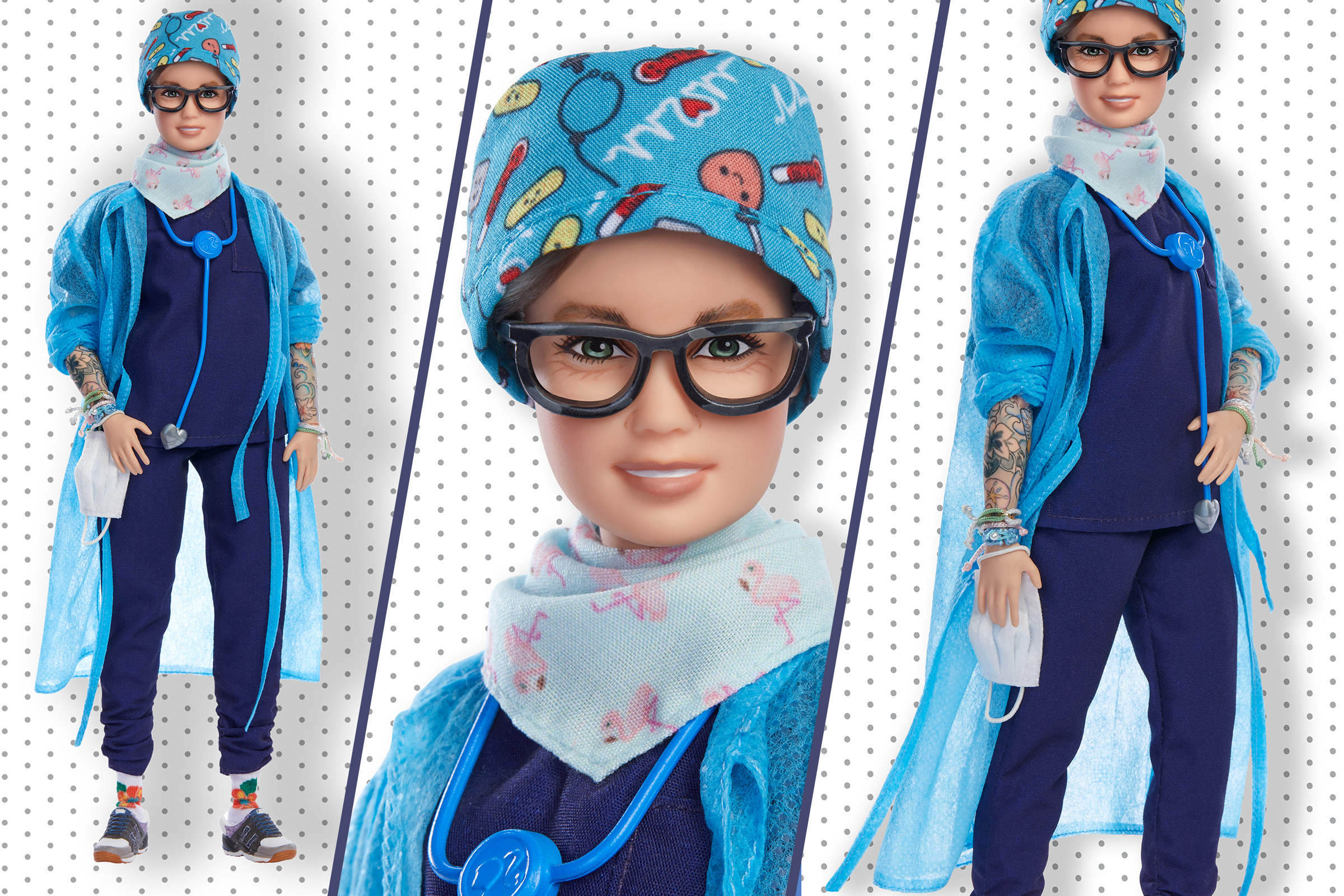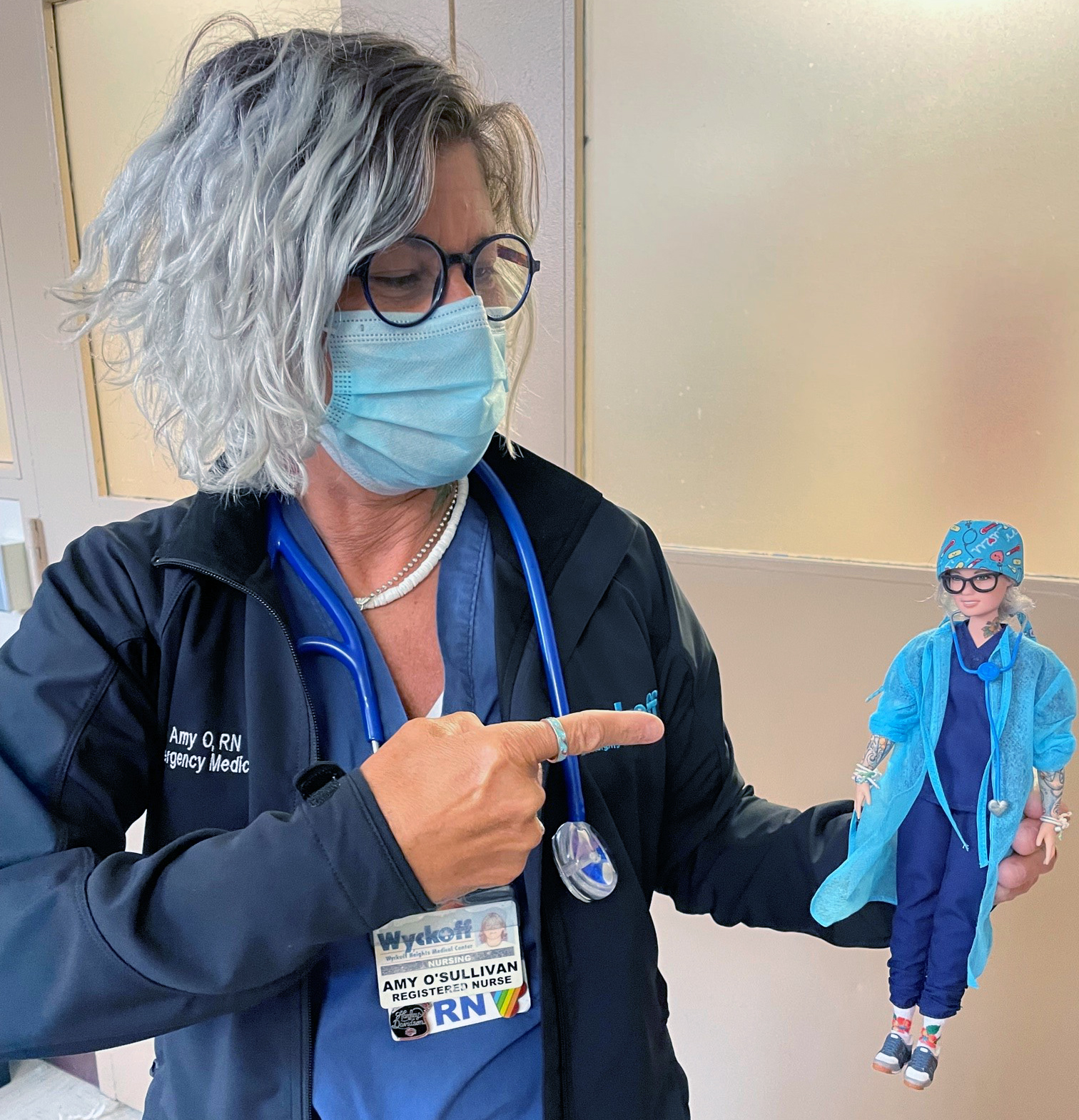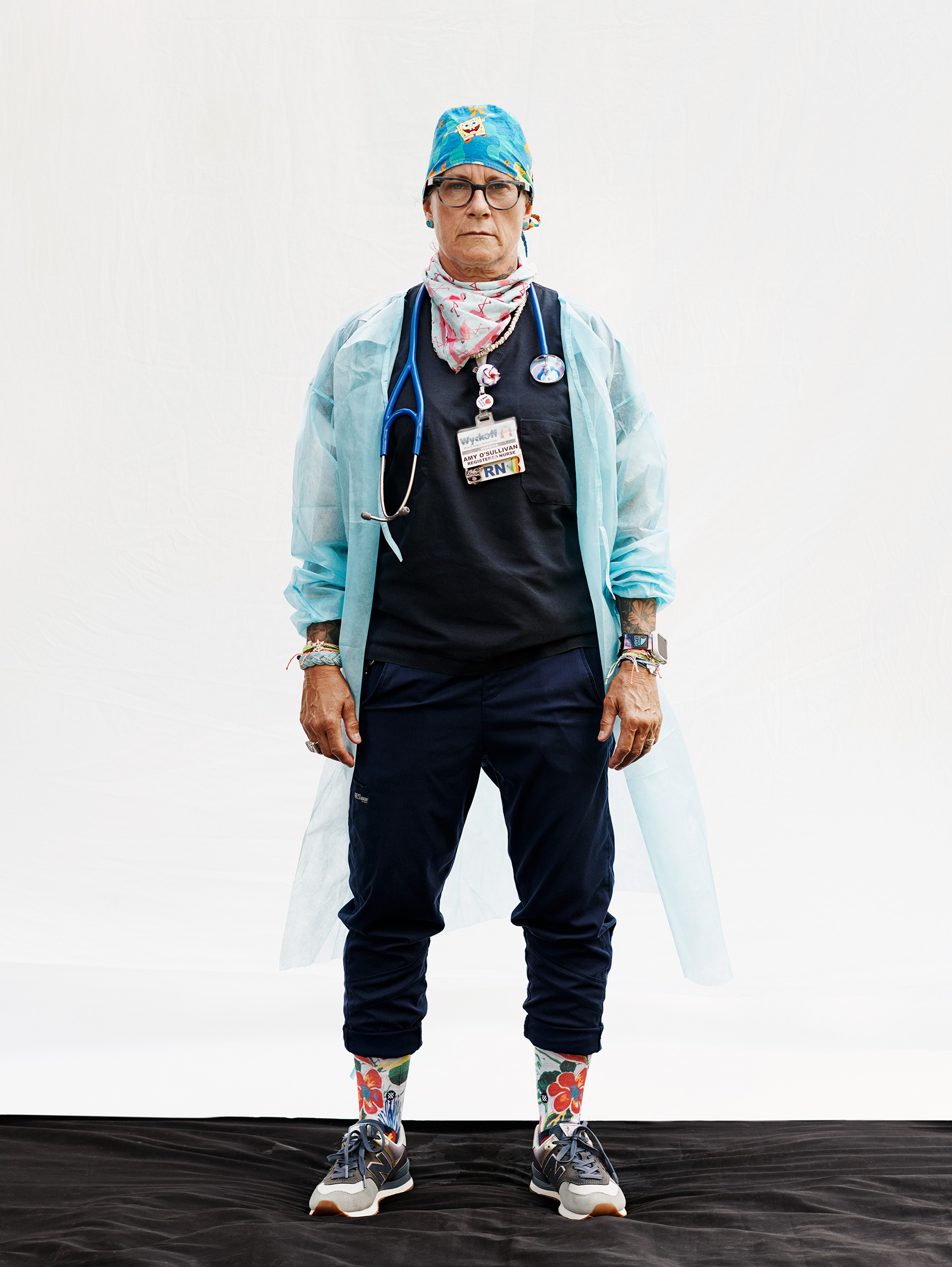
Mattel is honoring frontline workers with dolls modeled on real-life doctors and nurses. Among them is a doll version of Amy O’Sullivan, a nurse at the Wyckoff Heights Medical Center in Brooklyn, who appeared on the cover of TIME for the magazine’s 100 Most Influential People list last year. The doll has hand-painted tattoos, silver hair and the colorful socks O’Sullivan wears every day to work.
O’Sullivan was particularly touched by the details of her doppelgänger. “I used to get a hard time from the administrators about my tattoos and my hair and my pants being rolled up. But I didn’t want to be like anyone else,” she says. “I’m 58 so I had no role models when I was growing up. This, I think, shows kids it’s O.K. to be different. It encourages them to be themselves.”

Read More: The 100 Most Influential People of 2020
The five other dolls are modeled on Dr. Audrey Sue Cruz, a doctor in Las Vegas who is campaigning against racial bias against Asian-American physicians, Dr. Chika Stacy Oriuwa, a psychiatry resident in Canada who is fighting racism in the health care system, Sarah Gilbert, a professor in the U.K. who helped develop a COVID-19 vaccine, Dr. Jaqueline Goes de Jesus, a biomedical researcher who led the sequencing of the genome of the COVID-19 variant in Brazil and Dr. Kirby White, a general practitioner in Australia who developed reusable PPE for doctors.
Each of the women was presented with her own one-of-a-kind doll, and the toy company announced it will donate $5 for every doctor, nurse or paramedic Barbie sold at Target to the First Responders’ Children’s Program as part of its #ThankYouHeroes campaign. (The tribute dolls are not for sale.) Mattel launched the campaign last year to give back to communities in need. “This fall, admittedly, we thought we would be further along in the pandemic,” says Lisa McKnight, senior vice president at Mattel and the global brand manager for the Barbie brand. “But it was important to honor these amazing medical workers across the globe as we continue to face a difficult time.”
In her 62-year history, Barbie has held jobs as many different types of health care workers, in part, McKnight says, because children develop relationships with their pediatricians early on. “We hope these dolls can spark important conversations about the pandemic,” she says. “While it’s a somewhat scary topic, we think it opens the door to discussing these frontline workers who are amazing role models.”

O’Sullivan says she never played with Barbies growing up, though she did play with Ken dolls. Her partner, who is also a nurse, bought their daughters the gender-neutral dolls that Mattel launched in 2019, and O’Sullivan says they loved those dolls’ fluid identities.
O’Sullivan believes that her own kids and those she treats at the hospital understand how significant frontline workers are. “Our 6-year-old wants to be a puppy doctor,” she says. “Our 14-year-old is interested in being a surgeon. But they’ve really learned the importance of nurses and doctors.”
Read More: ‘A Doll For Everyone’: Meet Mattel’s Gender-Neutral Doll
Even as O’Sullivan waxes lyrical about her doll, she admits she is not feeling particularly optimistic about the pandemic. “We just can’t get away from it,” she says. “I see these young people not wearing masks. And, you know, those are the people that COVID is affecting now, the younger generation. They’re becoming very sick. And it’s never going to go away until we get vaccinated and wear masks.”
More Must-Reads From TIME
- The 100 Most Influential People of 2024
- The Revolution of Yulia Navalnaya
- 6 Compliments That Land Every Time
- What's the Deal With the Bitcoin Halving?
- If You're Dating Right Now , You're Brave: Column
- The AI That Could Heal a Divided Internet
- Fallout Is a Brilliant Model for the Future of Video Game Adaptations
- Want Weekly Recs on What to Watch, Read, and More? Sign Up for Worth Your Time
Write to Eliana Dockterman at eliana.dockterman@time.com